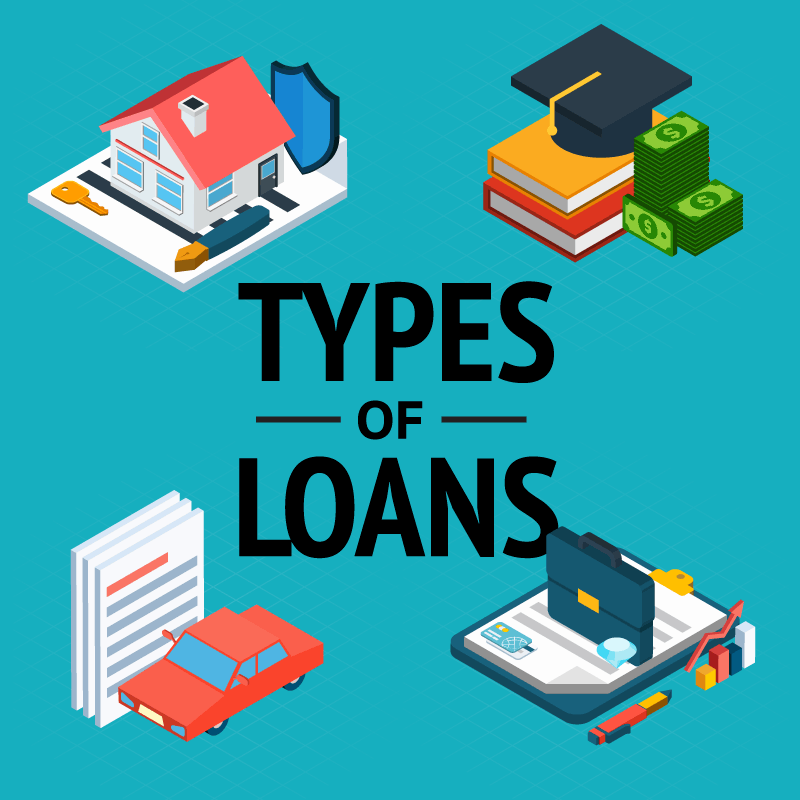Exploring updated ways to manage funds through Cash Advance Payday Loans
A Comprehensive Overview to Home Loans: Services and Options Explained
Charting the globe of mortgage can be complex. Numerous options exist, each with special features and ramifications for possible house owners. Understanding the differences between government-backed and standard fundings is vital. The application procedure involves precise paperwork and pre-approval steps that several overlook. As borrowers start on their home-buying journey, understanding just how to take care of these responsibilities properly could imply the difference between economic security and challenge. What approaches can empower them on this path?
Recognizing Home Loans: Kinds and Terms
Understanding the various sorts of home mortgage and their associated terminology is vital for potential property owners, as it equips them with the understanding required to make educated monetary choices. Home mortgage can be extensively categorized right into adjustable-rate and fixed-rate mortgages. Fixed-rate home loans preserve a regular passion rate over the life of the funding, supplying stability in month-to-month repayments. Cash Loans. Conversely, adjustable-rate home loans include rate of interest that might change after a preliminary set period, potentially resulting in lower first repayments yet increased future costs
Additional terminology is very important for clearness. Principal refers to the loan amount borrowed, while rate of interest is the price of loaning that quantity. The term of the lending suggests its period, commonly varying from 15 to thirty years. Comprehending these basic principles makes it possible for possible purchasers to browse the complicated landscape of home funding, ensuring they pick the best finance alternative that lines up with their economic scenario and long-lasting goals.
Standard Financings vs. Government-Backed Loans
A substantial distinction in home financing exists in between government-backed car loans and traditional financings, each satisfying different debtor demands and scenarios. Conventional lendings are not insured or assured by the government and normally need higher credit rating scores and deposits. They are commonly interesting consumers with secure financial backgrounds, as they may provide affordable rates of interest and terms.
On the other hand, government-backed fundings, such as FHA, VA, and USDA lendings, are created to aid particular groups of debtors, including new property buyers and veterans. Installment Loans. These financings normally feature lower deposit demands and even more adaptable debt criteria, making them obtainable to a broader variety of individuals
Ultimately, the selection between government-backed and conventional loans pivots on the debtor's financial scenario, long-term objectives, and qualification, making it vital to carefully assess both choices before deciding.

The Duty of Rate Of Interest Rates in Home Funding
Rates of interest play a vital function in home financing, affecting debtors' decisions between set and variable rate financings. The option in between these choices can significantly impact regular monthly payments, affecting overall affordability. Understanding exactly how rate of interest function is important for any individual maneuvering with the home mortgage procedure.
Taken Care Of vs. Variable Rates
Buyers encounter a crucial decision when picking in between fixed and variable prices, as this option substantially influences the price of financing in time. Fixed-rate home loans supply stability, locking in a rates of interest for the life of the loan, which can be beneficial in a climbing rate of interest environment. This predictability permits house owners to budget plan better. Alternatively, variable-rate mortgages, or adjustable-rate home loans (ARMs), generally start with reduced initial prices that can vary based upon market conditions. While this might cause lower first repayments, debtors face the threat of boosted rates in the future. Ultimately, the option between set and variable prices depends on individual monetary circumstances, risk tolerance, and assumptions pertaining to future rates of interest fads.
Impact on Monthly Payments
When evaluating home funding options, the effect of rates of interest on month-to-month settlements is a vital factor to consider. Rates of interest directly influence the general expense of borrowing, influencing just how much a customer will pay monthly. A lower interest rate lead to smaller monthly repayments, making homeownership a lot more cost effective. Alternatively, higher prices can substantially increase monthly obligations, possibly straining a house owner's budget. Additionally, the financing term plays a crucial duty; longer terms may spread settlements out yet can cause paying more rate of interest gradually. Comprehending just how rates of interest interact with finance amounts and terms is necessary for debtors to make enlightened monetary decisions and choose a home loan that straightens with their long-term monetary goals.
Home Loan Brokers vs. Straight Lenders: Which Is Right for You?
When considering a home mortgage, potential borrowers must comprehend the distinct duties and obligations of home loan brokers and direct lending institutions. Each option presents its very own benefits and negative aspects, which can considerably influence the overall cost of financing. An informed selection calls for mindful analysis of these factors to identify the best suitable for specific requirements.
Duties and functions Defined
Navigating the complexities of home funding needs a clear understanding of the roles and responsibilities of mortgage brokers and straight lending institutions. Home mortgage brokers function as intermediaries, connecting debtors with loan providers. They examine a consumer's monetary scenario, curate car loan alternatives, and guide customers via the application procedure, frequently leveraging several lending institution partnerships to secure beneficial terms. Alternatively, direct lenders, such as financial institutions and credit history unions, offer car loans directly to customers. They manage the whole finance process, from application to financing, with a focus on their own products. Each option offers unique avenues for acquiring funding, making it important for customers to examine their needs and preferences when choosing between involving a home mortgage broker or collaborating useful source with a straight loan provider.
Benefits and drawbacks Contrast
Selecting in between a home loan broker and a straight lender can considerably influence the home funding experience, as each choice offers unique advantages and downsides. Home mortgage brokers function as intermediaries, providing access to numerous lenders and possibly much better rates, while simplifying the car loan process. They may bill costs and count on compensation frameworks that might influence their referrals. On the other hand, direct loan providers improve the procedure by supplying in-house finances, which can cause faster approvals and less problems. On the other hand, they may have a limited selection of items and much less versatility pertaining to prices. Ultimately, the choice depends upon specific choices, economic situations, and the wanted level of assistance throughout the home mortgage journey.
Expense Implications Assessed
While examining the expense implications of home mortgage brokers versus direct lending institutions, potential property owners need to think about numerous factors that can significantly influence their overall expenditures. Home mortgage brokers typically charge fees for their services, which can vary substantially, influencing the total car loan price. However, they commonly have accessibility to a bigger series of finance items and affordable rates, potentially saving consumers money over time. Conversely, direct lenders may use an extra straightforward process with possibly reduced in advance costs, but their car loan alternatives might be limited. It is important for property owners to compare rates of interest, charges, and terms from both lending institutions and brokers, ensuring they make an educated decision that lines up with their financial goals and requirements.
The Home Loan Application Refine: What to Anticipate

The home loan application procedure can commonly feel intimidating for lots of candidates. my site It generally starts with gathering needed documents, consisting of evidence of earnings, credit rating background, and individual recognition. Lenders utilize this information to examine the candidate's economic security and figure out car loan qualification.
Next off, candidates send a formal application, which might involve filling in on-line types or giving details personally. Throughout this phase, lending institutions review numerous variables, such as debt-to-income proportion and credit history, to select loan terms.
As soon as pre-approved, the lender will certainly perform a detailed appraisal of the building to determine its value aligns with the car visit this site right here loan quantity. This phase might additionally consist of additional history checks.

After final authorizations and problems are met, the finance is processed, resulting in the closing phase. Recognizing each action encourages applicants, making the journey smoother and a lot more workable as they approach homeownership.
Tips for Handling Your Mortgage Properly
Successfully navigating the mortgage application procedure is simply the start of a responsible economic trip. Handling a home car loan calls for focus to numerous vital practices. Debtors ought to establish a clear budget that accommodates monthly mortgage settlements, residential property taxes, and insurance. Routinely assessing this spending plan helps protect against overspending and assurances timely settlements.
In addition, making additional payments when feasible can substantially minimize the finance principal and overall interest paid with time. Borrowers should additionally preserve open lines of interaction with their loan provider, particularly in times of economic trouble. This can result in possible services such as car loan modifications or re-financing options.
It is a good idea to check debt ratings regularly. A good credit rating can offer possibilities for better funding terms in the future. Cash Advance. By complying with these tips, property owners can navigate their finance obligations efficiently, guaranteeing lasting monetary health and security
Frequently Asked Questions
What Are Closing Costs and How Are They Determined?
Closing expenses include charges connected with settling a home mortgage, consisting of assessment, title insurance policy, and lending origination fees. These costs typically vary from 2% to 5% of the loan quantity, differing based upon area and lender.
Can I Get a Mortgage With Bad Credit?
Yes, individuals with bad credit scores can certify for a home mortgage, though choices may be limited. Lenders frequently call for greater down repayments or rates of interest, and checking out government-backed finances might boost opportunities of authorization.
What Is Home loan Insurance and When Is It Needed?
Home loan insurance coverage safeguards lenders against default and is usually called for when a consumer makes a down repayment of less than 20%. It assures that lenders recoup losses if the customer falls short to pay off the finance.
Exactly How Does Refinancing Work and When Should I Consider It?
Refinancing entails replacing a present home loan with a new one, commonly to protect a reduced rates of interest or adjustment lending terms. Home owners should think about re-financing when rates of interest drop significantly or their monetary scenario enhances.
What Takes place if I Miss a Home Mortgage Payment?
If a home loan repayment is missed out on, the lending institution typically assesses late charges, reports the misbehavior to credit history bureaus, and might launch repossession procedures if payments remain to be ignored, eventually threatening the house owner's property.
Fixed-rate home loans preserve a consistent passion price over the life of the car loan, supplying security in month-to-month payments. A significant distinction in home financing exists between conventional fundings and government-backed finances, each catering to different borrower demands and situations. In comparison, government-backed finances, such as FHA, VA, and USDA finances, are made to aid certain groups of customers, including novice homebuyers and professionals. Passion prices play a crucial function in home financing, affecting debtors' choices between variable and fixed price car loans. Fixed-rate home mortgages offer security, securing in an interest price for the life of the funding, which can be beneficial in a rising passion rate atmosphere.